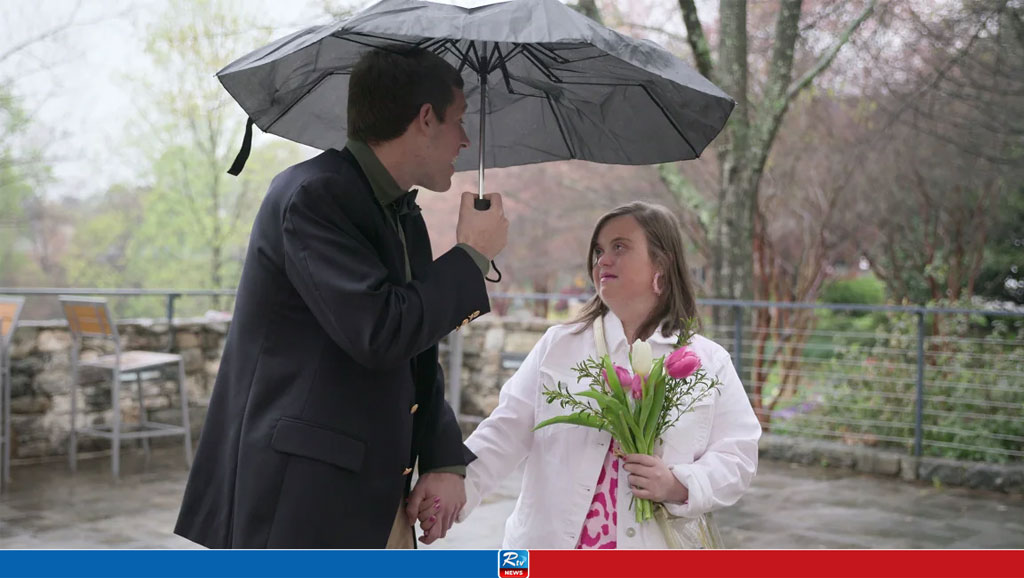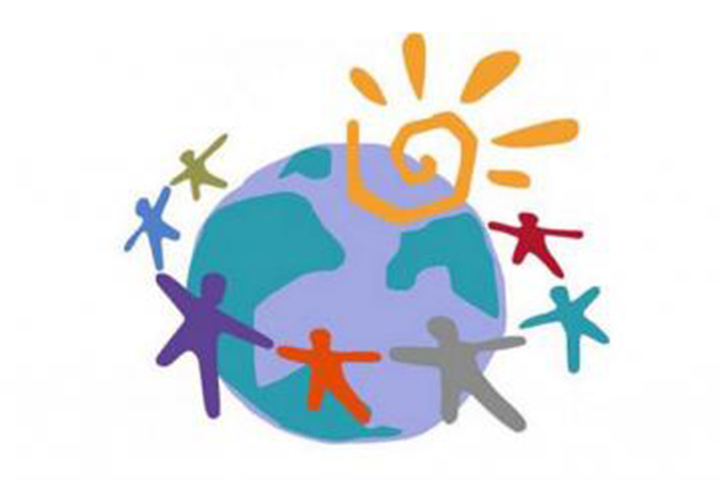‘Love on the Spectrum’ reveals the challenges of autism representation
It’s rare to see autism portrayed in media, and rarer still to see representation for adults with autism. The Netflix reality show “Love on the Spectrum,” based on an Australian show with the same name, is arguably the most visible program where people can see what it’s like for real autistic adults to navigate the challenges of life and love.
The show follows a group of adults with autism as they navigate the dating world, aided by a relationship coach and the input of their loved ones. Despite its generally warm reception, the show has also received criticism from within adult autism communities. Some see it as a kind, compassionate representation of the social challenges people with autism face. Others see any good faith representation as a step in the right direction, even if it’s incomplete.
“‘Love on the Spectrum’ is kind, but unrepresentative,” reads a review of the first season posted on Spectrum, an autism news and research publication.
In online forums, some adults with autism spectrum disorder (ASD) have taken issue with production details: A violin plucks a childlike motif when people describe their special interests and hobbies. Descriptions from family and friends, though well meaning, sometimes carry the tone of one speaking about a child rather than a grown adult. Throughout their dating journey, advice the cast receives sometimes encourages a “normalcy” that is, frankly, unnatural to many people with autism.
“While it’s nice to see representation, some of the ways they portray people’s behaviors and their likes and dislikes feels like they’re playing into stereotypes of autistic people as being weird or childlike when they’re not,” Krista Ferguson, a 42-year-old with ASD and a member of Reddit’s 342,000-member autism subreddit, told CNN.
Rather than being a criticism of the show in particular, the reactions to “Love on the Spectrum” speak to deeper nuances within the autism community that often go unnoticed. They also reveal gaps in the way allistic (non-autistic) people understand the autistic mind; that “normal” is sometimes neither possible nor desired, and that love — and acceptance, and success — are not things to be gained at the expense of suppressing one’s true self.
What ‘Love on the Spectrum’ looks like
Cast members on “Love on the Spectrum” make it clear they want to find someone who loves them for them.
For some, that means a partner who will participate in their special interests, whether it’s medieval history or a love of cosplay. One could practically hear swoons when animal lover Abbey Romeo, a Season 1 favorite who continued her dating journey in Season 2, joined her boyfriend David Isaacmen on a trip to Africa — an adventure he had planned especially for her. For others, it means a partner who supports specific sensitivities or displays patience and understanding in challenging situations.
It’s not uncommon to see very matter-of-fact language as cast members clarify the particulars of their romantic expectations. “I hope you don’t think me blunt, but I kind of like you, and I was wondering if maybe you’d like to hold hands,” cast member Connor Tomlinson tells one of his partners during a speed date. Another cast member suggests to her date that they have a round of kissing practice on cupcakes before trying the real thing.
Obviously, not every date works out, and “Love on the Spectrum” shows daters weighing their fears of being alone with their fears of settling for someone who’s not quite right. When cast member Steve Spitz started to get close to a woman he wasn’t sure about, he ended up cutting ties rather than ignoring discomfort in the name of love.
“I learned that finding love isn’t an easy process,” Spitz told Netflix after Season 2 was released. “There’s so much more to finding love than just having similar interests. You have to be compatible, trusting, and fair to the other person.”
Why it’s so hard to get autistic representation right
Autism among adults is often hard to understand due to a lack of research and public awareness. The first US study of adults with autism wasn’t published until 2020. Despite its conclusion that an estimated 5.5 million US adults live with ASD, most high-profile autism research and advocacy revolves around children with autism and their parents. Fearing stigma and discrimination, many adults with autism keep their condition a secret. Even more adults may live with autism and not know it, or avoid a diagnosis.
When autism is visible, whether it’s in our own social circles or on a TV show, the individual experience is never representative of the whole.
“When we’re talking about a spectrum, there’s an infinite number of ways a person can be autistic, so there are also endless possibilities for how a person can be seen or portrayed,” said André Felipe de Medeiros, a neurodivergent podcaster and journalist from São Paulo, Brazil.
In his limited viewing of “Love on the Spectrum,” Medeiros said he found a “good mix of people presenting different traits that can be found on the spectrum.” These traits can include different tolerances to social situations or stimuli, varied speech patterns and conversational habits, the presence of verbal or physical “stimming,” (self-regulating with repetitive motions or vocalizations) physical differences and the need for some kind of supportive care.
He also recommended the scripted shows “Everything’s Gonna Be Okay” and “Atypical” as two examples where autism representation hit the mark.
“On both shows, different characters on the spectrum had different traits, giving viewers a broader picture of what autism can be,” he told.
“Good autism representation comes from being open to understanding that the spectrum is incredibly vast and being honest about how the way an autistic person or character is being represented is only one of infinite possibilities.”
Autism is more than a social challenge
On “Love on the Spectrum,” the focus for participants is mostly on social interactions — the infinite web of cues and clues that make dating hard for anyone, let alone people with differently-wired brains. That’s definitely part of it, but limiting the challenges of ASD to some double-black-diamond social gauntlet ignores larger experiences of autism.
“Autism is so much more than social communication,” said Dr. Megan Anna Neff, a clinical psychologist and author of “Self-Care for Autistic People.” “We have very sensitive nervous systems. Part of that is how we take in sensory information and stressors, and there are a lot of things we do to accommodate that.”
Neff says common “autistic” traits like adhering to routines and disliking unexpected change may manifest in a social way, but are really speaking to something different.
“All of these things that are so-called symptoms of autism are really ways that we are adapting to our nervous system to be able to move through the world,” she said.
Having to constantly regulate in a way that most people don’t can lead to other behaviors that are considered to be outside of the social norm, like seeking long periods of time alone. While some people might find this concerning, Neff said for many people with autism, it is a necessary form of self-care.
The problem with trying for ‘normalcy’
One of the most frustrating things for autistic adults is the pressure to act “normal” — a pressure that, for better or worse, is reflected in shows like “Love on the Spectrum.” On the show, dating coaches gently instruct participants how to act in socially typical ways. That often means suppressing natural autistic tendencies like stimming and editing oneself in conversations to avoid, say, speaking too forcefully or talking at length about a special interest.
The fact is, many people with autism already engage in some form of self-censorship. It’s called “masking,” and while it is a common way for autistic adults to fit into social situations, it’s also extremely draining and isolating.
“When we mask, we suppress the urge to communicate authentically, or to soothe our bodies in ways that might look different to others,” said Neff. “So perhaps other people might feel more connected to me when I mask, but I’m going to feel less connected to them. It can facilitate small talk, but it doesn’t actually forge authentic connection.”
Sometimes, Neff said, autistic people find masking necessary — but it’s also a privilege that many on the spectrum simply cannot access.
That diversity of ability and comfort with suppressing natural behaviors makes media representation even more complicated. Some critics of shows like “Love on the Spectrum” say it doesn’t acknowledge a wide array of ASD experiences, which can include physical, verbal and intellectual differences. While Neff says she’d like to see more diversity of race, gender and sexuality in such programs, she says the experiences that do get portrayed are just as valid.
“I think there’s some division happening in the autistic advocacy space among those who mask and those who don’t. There’s a temptation to see a show and be like, well, that doesn’t show me,” she said.
“But for those who present in a more stereotypical way, who do mask and want to fit in, they might feel seen. So I think it’s always important to show the many ways we present. We need a kaleidoscope of representation.”
Source: CNN
18 Mar 2024,20:05
















 Live Tv
Live Tv


